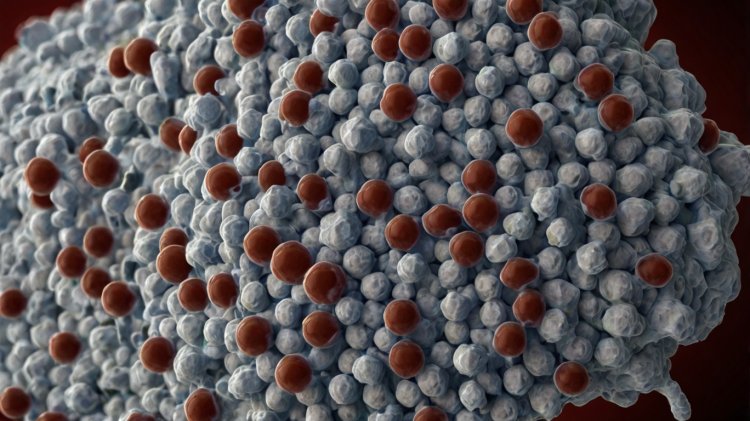Hepatitis C Testing and Diagnosis: Everything You Need to Know
Hepatitis C is a liver infection caused by the hepatitis C virus (HCV), often spread through blood-to-blood contact. Early diagnosis is vital to prevent complications. Learn about testing methods, diagnosis, and the steps to take if you test positive.

A Complete Guide to Hepatitis C Diagnosis and Testing
Hepatitis C is a viral infection caused by the hepatitis C virus (HCV) that affects the liver. It can lead to serious complications if left untreated, making early diagnosis critical. Whether acute or chronic, the virus is primarily spread through blood-to-blood contact. This guide explains how hepatitis C is diagnosed, testing methods, and steps to take if you test positive.
How Is Hepatitis C Diagnosed?
Accurate diagnosis often requires multiple blood tests to confirm the presence of the virus and assess its activity. Key tests include:
1. HCV Antibody Test (Anti-HCV Test)
This initial test detects antibodies to the hepatitis C virus:
-
Negative Result: No exposure to hepatitis C.
-
Positive Result: Indicates past exposure but does not confirm an active infection.
2. HCV RNA Test (Nucleic Acid Test)
If the antibody test is positive, this follow-up test detects the virus itself:
-
Positive Result: Confirms an active infection.
-
Negative Result: Indicates no current infection.
3. Additional Tests
To evaluate the extent of the infection and guide treatment, additional tests may include:
-
Genotype Test: Identifies the specific strain of HCV for tailored treatment plans.
-
Liver Function Tests: Assesses liver health by measuring enzyme levels in the blood.
-
Liver Imaging: Techniques like ultrasound, CT scan, or MRI help detect liver damage or cirrhosis.
-
Liver Biopsy: A small tissue sample is analyzed for damage or scarring.
How to Get Tested for Hepatitis C
Where to Get Tested
-
Doctor or Clinic: Schedule an appointment to discuss your risk factors and request testing.
-
Community Health Centers: Many offer free or low-cost testing.
-
At-Home Test Kits: Collect a blood sample at home and mail it to a lab.
Testing Timeline
Hepatitis C antibodies may not appear immediately after exposure. The window period is typically 8 to 11 weeks. Testing during this time may yield false negatives, so follow up if recent exposure is suspected.
Rapid vs. Traditional Testing
-
Rapid Testing: Results available within 30 minutes.
-
Traditional Testing: Results may take several days or weeks.
Next Steps
After testing, consult a healthcare professional to:
-
Interpret your results.
-
Plan further testing if necessary.
-
Discuss treatment options.
What Does It Mean to Test Positive for Hepatitis C?
A positive test indicates the virus is active in your bloodstream and requires treatment to prevent complications. Key points include:
-
Treatment Is Effective: Nearly 95% of cases are curable within 8 to 12 weeks of starting oral antiviral medications.
-
Early Treatment Is Crucial: Prompt care prevents complications like liver cirrhosis or cancer.
-
Monitoring Is Essential: Regular check-ups ensure liver health and detect recurrence early.
Is Hepatitis C an STI?
Hepatitis C primarily spreads through blood-to-blood contact, such as sharing needles or transfusions with contaminated blood. While not classified as a sexually transmitted infection (STI), it can be transmitted through sexual activity under certain conditions:
-
Risk increases with:
-
HIV or another STI.
-
Multiple sexual partners.
-
Unprotected anal sex.
-
Preventive measures include using condoms and avoiding sharing personal care items like razors or toothbrushes.
Can You Have Hepatitis C Without Knowing It?
Yes, many individuals remain asymptomatic for years, earning hepatitis C the nickname "silent killer."
-
Statistics:
-
1 in 3 people with hepatitis C are unaware they are infected.
-
65-75% show no symptoms until advanced liver damage occurs.
-
-
Why Early Testing Matters: Early detection prevents severe liver injury and enables effective treatment.
Takeaway
Hepatitis C affects an estimated 2.4 million people in the United States, with half unaware of their condition. The CDC recommends testing for:
-
Everyone aged 18 and older.
-
Pregnant individuals during each pregnancy.
-
People with additional risk factors.
If you test positive, effective treatments and support are available to help you manage and overcome the disease. Consult your healthcare provider to create a comprehensive care plan and access support resources for physical and emotional well-being








